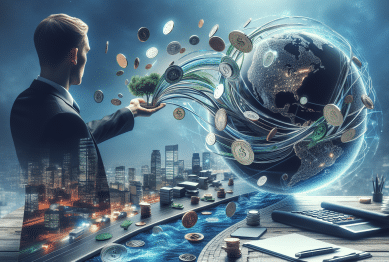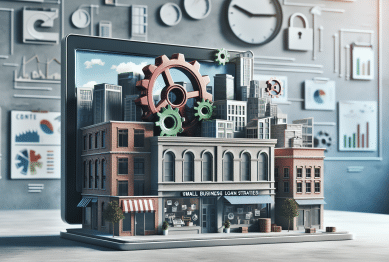In 2025, green business practices are no longer optional—they’re powering the next wave of economic innovation. From circular economy models to socially just climate resilience, businesses are turning environmental responsibility into competitive advantage. This article spotlights the hottest emerging trends in green practices that are reshaping markets—and how companies can stay ahead with actionable strategies supported by trusted sources.

1. Circular Economy and Recommerce: Closing the Loop
The “take-make-waste” economy is giving way to a circular model focused on reusing, repairing, and recycling.
- The circular-economy model is projected to grow from 696 billion dollars in 2024 to 2.882 trillion dollars by 2031, revealing massive investment potential.
- Particularly in retail, businesses are rolling out buy-back schemes and resale platforms to extend product lifecycles, reduce waste, and attract eco-minded consumers.
- Startups are leading the charge: for instance, Grover refurbishes and rents electronics as an alternative to outright ownership.
Why it matters as a green business practice: Circular strategies cut costs, open new revenue streams, and build brand differentiation.
2. Green Finance and Capital Flow: Investing in Sustainability
Climate-aware finance is shaping corporate trajectories.
- A recent Business Breakthrough Barometer shows 91% of business leaders have maintained or increased transition-related investments—and 92% believe the cost of inaction outweighs the cost of change.
- In the fashion sector, financiers are encouraging alignment between environmental goals and financial products—such as sustainability-linked loans and green bonds—to ensure long-term resilience.
Green finance isn’t a niche; it’s rapidly becoming a strategic lever across industries.
3. Regulatory Overhaul and ESG Accountability: The New Normal
Compliance and credibility now go hand in hand.
- In the EU, the Corporate Sustainability Reporting Directive (CSRD) mandates sustainability disclosures starting in 2025, covering over 50,000 organizations.
- Simultaneously, new green claims regulation—including the EU Green Claims Directive—requires companies to back environmental claims with evidence, combating greenwashing.
For businesses, proactive transparency isn’t just good ethics—it’s smart risk management and brand building.
4. Nature-Climate-Social Integration & Just Resilience
Sustainability strategies are maturing to include nature and social impact.
- In 2025, there’s growing emphasis on merging nature preservation, climate mitigation, and social justice into business strategy.
- The concept of “just resilience” is gaining traction in fashion: supporting worker rights, transparent supply chains, and climate adaptation in vulnerable regions, not just emissions reduction.
Embedding equity into sustainability yields resilient, future-proof business operations.
5. Renewable Energy and Operational Shifts
Renewables remain a cornerstone—even amid political uncertainty.
- A survey across 15 countries shows that over half of companies plan to relocate or shift supply chains in the next five years to access greener energy; 93% are considering on-site renewable installations.
- Regions with strong clean-energy policies—like Germany—have drawn 37 billion euro in clean energy investment in 2023, illustrating that capital follows clarity.
Green business practices that integrate renewable energy help companies secure energy independence and future viability.
6. Technology-Driven Sustainability: Smarter, Greener Systems
Tech isn’t backing off—it’s accelerating green progress.
- AI and IoT are being deployed to track carbon emissions, optimize resource usage, and enhance supply chain transparency.
- New research shows green computing—including energy-efficient data centers and e-waste circularity—can cut IT energy use by 40–60%, with payback in 3–5 years.
- AI is also aiding sustainable supply chains, using predictive analytics and optimization to lower emissions—especially relevant in large economies like the U.S.
Smart tech adoption turns sustainability from a cost center into a productivity booster.
7. Scaling Sustainability with MSMEs (Small Businesses)
Smaller players are rising to the green challenge too.
- In India, micro, small, and medium enterprises (MSMEs) are increasingly adopting eco-friendly practices—not just for rules, but for long-term growth.
This highlights that green business practices aren’t just for big enterprises—they’re essential at every scale.
Summary: Why Green Business Practices Matter Now
| Trend | Why It’s Hot | Value for Business |
|---|---|---|
| Circular Economy | Fast-growing sector and consumer demand | Cost savings, new business models |
| Green Finance | Capital alignment with sustainability | Improved investment access |
| ESG Regulation | Accountability and transparency demands | Better reputation, lower risk |
| Just Resilience | Inclusive climate strategies | Secure and ethical operations |
| Renewable Energy | Energy security and resilience | Long-term competitiveness |
| Tech-Driven Efficiency | Measurable impact and automation | Cost reduction, innovation |
| MSME Adoption | Scaling green beyond big firms | Market-wide sustainability culture |
Green business practices are reshaping the economy—making environmental care a strategic foundation, not just a compliance checkbox.
Action Steps: How to Adopt Green Business Practices Today
- Conduct a Circularity Audit
Identify opportunities to reuse materials, launch refurb programs, or partner with resale platforms. - Engage with Green Finance
Explore ESG-linked loans, green bonds, or carbon-linked financial products in line with sustainability goals. - Improve Reporting and Claims
Begin drafting for CSRD readiness and verify environmental claims with credible data sources. - Invest in Just Resilience
Audit supply chain vulnerabilities, support worker resilience, and participate in adaptation funding schemes. - Shift Toward Renewables
Assess feasibility for on-site renewables or supply chain moves to renewable-powered regions. - Leverage Tech Solutions
Pilot AI for carbon tracking, upgrade computing infrastructure for energy savings, or optimize logistics. - Empower MSMEs
Share tools and guidance to help small suppliers adopt environmental best practices.
Conclusion
The expansion of green business practices is more than a trend—it’s a transformative economic shift. From circular models and green finance to social equity and tech innovation, 2025 is all about embedding sustainability into the core of business strategy.
Forward-looking companies treat environmental solutions not as a burden, but as a growth engine. If your business is exploring these emerging trends, you’re not just staying relevant—you’re leading the way. The pace of change will only accelerate, so taking action now ensures resilience, competitiveness, and a positive legacy for both the planet and future generations. Proactive adoption today paves the path for long-term profitability, stakeholder trust, and global impact that extends far beyond immediate gains.
References
- Anthesis Group. (2025, January 9). Sustainability trends to watch in 2025. Anthesis.
Available at: https://www.anthesisgroup.com (Accessed: 14 August 2025). - Economist Impact. (2024, December 14). Sustainability trends for 2025. Economist Impact.
Available at: https://impact.economist.com (Accessed: 14 August 2025). - Neste. (2025, January 3). Sustainability trends of 2025. Neste. Available at: https://www.neste.com
(Accessed: 14 August 2025).









